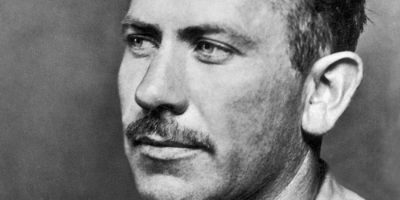
A photo of Hosni Mubarak by Presidenza della Repubblica – Wikimedia commons
Top 10 Facts about Hosni Mubarak
Muhammad Hosni El Sayed Mubarak, also known by his initials, M.H.E. Mubarak, was a prominent Egyptian statesman and military officer who held the office of President of Egypt for a prolonged period of almost 30 years, spanning from 1981 until 2011. Before he entered politics, Mubarak had a distinguished career in the Egyptian Air Force, serving as its commander from 1972 to 1975, and rising to the rank of air chief marshal in 1973.
In 1975, he was appointed as Vice President by President Anwar Sadat and subsequently assumed the presidency following the tragic assassination of Sadat in 1981. Mubarak’s tenure as President was the longest in Egypt’s modern history, surpassing that of Muhammad Ali Pasha, who ruled the country for 43 years from 1805 to 1848. In the article are the top ten facts about Hosni Mubarak.
1. Hosni Mubarak was the President of Egypt for 30 years, from 1981 until 2011
Hosni Mubarak held the office of President of the Arab Republic of Egypt for an extended period of 30 years, spanning from 1981 until his ouster in 2011. During this tenure, he wielded significant executive authority and wielded significant influence over the country’s political and economic landscape.
During his tenure as vice president, Mubarak was considered to be a loyal and dutiful number two who would not challenge Sadat. He was appointed as vice president to balance out the influence of the military in the government, as well as to provide a civilian face to the government.
Visit: Top 10 Fascinating Facts about Wally Funk
2. He rose to power after the assassination of President Anwar Sadat in 1981
Hosni Mubarak attained the highest office of the land, following the untimely demise of President Anwar Sadat, who was assassinated in 1981. As a result of this tragic event, Mubarak, who was serving as Vice President at the time, ascended to the presidency by the constitutional protocols.
At the time, Mubarak was serving as Vice President and was next in line for the presidency according to the Egyptian constitution. After the assassination, Mubarak was quickly sworn in as President and assumed office the same day.
Mubarak was a former air force officer and had served as Vice President under Sadat for less than a year.
He was not a major political figure before he became president and was not considered a likely candidate for the presidency. However, after Sadat’s death, the ruling National Democratic Party (NDP) and the military establishment supported Mubarak’s rise to power, seeing him as a reliable and stable leader who would continue Sadat’s policies.
3. He was considered an authoritarian leader
Mubarak was widely perceived as an autocratic leader who exhibited a proclivity for suppressing political dissent and flagrantly disregarding human rights. He was known to exercise iron-fisted control over the nation’s political landscape, utilizing various tactics such as censorship, intimidation, and repression to silence opposition voices and maintain his grip on power.
Furthermore, his administration was frequently criticized for its frequent violations of civil liberties and human rights, including the use of torture, extrajudicial killings, and arbitrary detention.
4. Mubarak’s government was known for its close relationship with the United States and Israel
The administration of Hosni Mubarak was widely acknowledged to possess a cordial and collaborative relationship with the United States and Israel. The alignment of foreign policy objectives between Egypt, the United States, and Israel, particularly in the sphere of regional security and stability, contributed to the strengthening of diplomatic ties between these nations.
Additionally, the financial and military aid provided by the United States to Egypt under Mubarak’s rule further solidified the countries’ alliance. Furthermore, the government of Mubarak maintained a pragmatic and cooperative relationship with Israel, despite the historical enmity between the two nations, to secure regional stability and maintain the peace treaty signed between the two nations.
Visit: Top 10 Amazing Facts about Alanna Ubach
5. He was overthrown during the 2011 Egyptian Revolution
Hosni Mubarak was deposed from his position as President of Egypt as a result of the 2011 Egyptian Revolution, a popular uprising that sought to overthrow his regime. The widespread discontent and frustration with his administration, particularly about issues of poverty, unemployment, and political repression, led to mass protests and civil unrest throughout the country.
The demonstrations, which were met with a violent crackdown by the state, ultimately resulted in the ouster of Mubarak from power and his subsequent arrest on charges of corruption and the unlawful killing of protesters.
6. He was convicted and sentenced to life in prison
Hosni Mubarak was found guilty and meted out a life sentence on charges of corruption and the unlawful killing of protesters, stemming from his actions during the 2011 Egyptian Revolution. However, the conviction and sentence were subsequently overturned on appeal due to procedural errors and a lack of sufficient evidence.
Subsequently, several of the charges against him were dismissed, and he was acquitted of others, bringing into question the legitimacy and validity of the initial conviction and sentence.
Visit: Top 10 Facts about John Leguizamo
7. Mubarak was in poor health during his trial and imprisonment and was released from prison in 2017
Mubarak’s state of health during his trial and subsequent incarceration was widely acknowledged as being in a precarious condition. He was reported to have suffered from a range of afflictions, including but not limited to, heart and respiratory issues. His poor health was cited as a mitigating factor in his release from prison in 2017. Due to his health state, he was granted the privilege of house arrest instead of continuing to serve his sentence in prison.
8. He died on February 25, 2020, at the age of 91
Hosni Mubarak passed away on February 25, 2020, succumbing to the infirmities of old age at the venerable age of 91. Despite his tumultuous tenure as President of Egypt and the controversies that surrounded his rule, his death marked the end of an era in the country’s political history and was widely acknowledged as the passing of a significant figure in the nation’s recent past.
9. Mubarak’s rule was marked by economic liberalization
The tenure of Hosni Mubarak was characterized by the implementation of economic liberalization policies aimed at promoting economic growth and foreign investment in Egypt. These policies had the effect of spurring economic activity and led to a significant increase in the country’s Gross Domestic Product (GDP).
However, these policies also had several negative consequences, including the exacerbation of income inequality and the proliferation of corruption. The liberalization policies led to the concentration of wealth and power in the hands of a small elite, while the majority of the population struggled to make ends meet.
Furthermore, the lack of regulatory oversight and the permissive attitude towards corruption led to the erosion of integrity and transparency in the country’s economic and political systems.
Visit: Top 10 Amazing Facts about Leonardo Dicaprio
10. He survived six assassination attempts
As a result of his stance against Islamic fundamentalism and his diplomatic overtures towards Israel, Hosni Mubarak was the subject of repeated attempts on his life. The BBC cites that Mubarak survived six such attempts. One such instance was in June 1995, when an alleged assassination attempt involving toxic gases and the Egyptian Islamic Jihad occurred while Mubarak was in Ethiopia for a conference of the Organization of African Unity.
Additionally, in September 1999, there were reports of him being injured by a knife-wielding assailant in Port Said. These repeated attempts on his life were a testament to the intense opposition he faced from various factions within the country, due to his policies and actions.
Planning a trip to Paris ? Get ready !
These are Amazon’s best-selling travel products that you may need for coming to Paris.
Bookstore
- The best travel book : Rick Steves – Paris 2023 – Learn more here
- Fodor’s Paris 2024 – Learn more here
Travel Gear
- Venture Pal Lightweight Backpack – Learn more here
- Samsonite Winfield 2 28″ Luggage – Learn more here
- Swig Savvy’s Stainless Steel Insulated Water Bottle – Learn more here
Check Amazon’s best-seller list for the most popular travel accessories. We sometimes read this list just to find out what new travel products people are buying.









